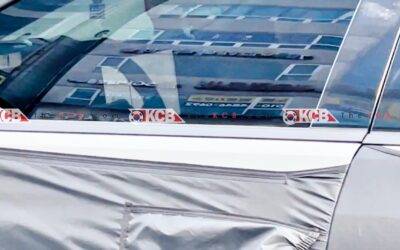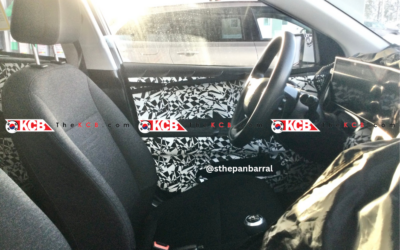The 2017 Hyundai Santa Fe Sport when equipped with optional front crash prevention, has earned the Insurance Institute for Highway Safety’s (IIHS) TOP SAFETY PICK+ award today for achieving a high level of safety standards.
[ads id=”0″ style=”float:left;padding:9px;”]The Santa Fe Sport received good ratings in the institute’s moderate overlap front, small overlap front, side, roof strength and head restraints tests. Santa Fe Sport’s optional Automatic Emergency Braking (AEB) with Pedestrian Detection also earned a superior rating.
TOP SAFETY PICK+ is the institute’s highest award. To achieve a Top Safety Pick+ designation, a vehicle must have a good rating in the five occupant protection tests and an advanced or superior rating for an available front crash prevention system.
“The Santa Fe Sport’s optional front crash prevention system earns a superior rating,” said David Zuby, IIHS chief research officer. “The Santa Fe Sport avoided collisions in IIHS track tests at 12 mph and 25 mph. The system also has a forward collision warning component that meets the NHTSA criteria.”
“We are thrilled that Santa Fe Sport has achieved the gold standard for CUV safety from IIHS and NHTSA,” said Mike O’Brien, vice president, corporate and product planning, Hyundai Motor America. “These awards underline our commitment to developing advanced technologies that assist in avoiding crashes all together. A class-leading body structure protects occupants if a collision does occur.”
[ads id=”0″ style=”float:left;padding:9px;”]Santa Fe Sport Safety Features
Standard safety equipment on the 2017 Santa Fe lineup includes: Vehicle Stability Management (VSM) with Electronic Stability Control (ESC) and Traction Control System; seven airbags, including a driver’s knee airbag; four-wheel disc brakes and ABS with Electronic Brake-force Distribution (EBD) and Brake Assist; Hill-start Assist Control (HAC) with Downhill Brake Control (DBC); and a Tire Pressure Monitoring System (TPMS).
AEB uses both the forward-facing radar and camera, through sensor fusion, to detect a vehicle or pedestrian, and warns the driver of a potential collision. If the driver does not react to avoid the impact, the system will apply emergency braking.






